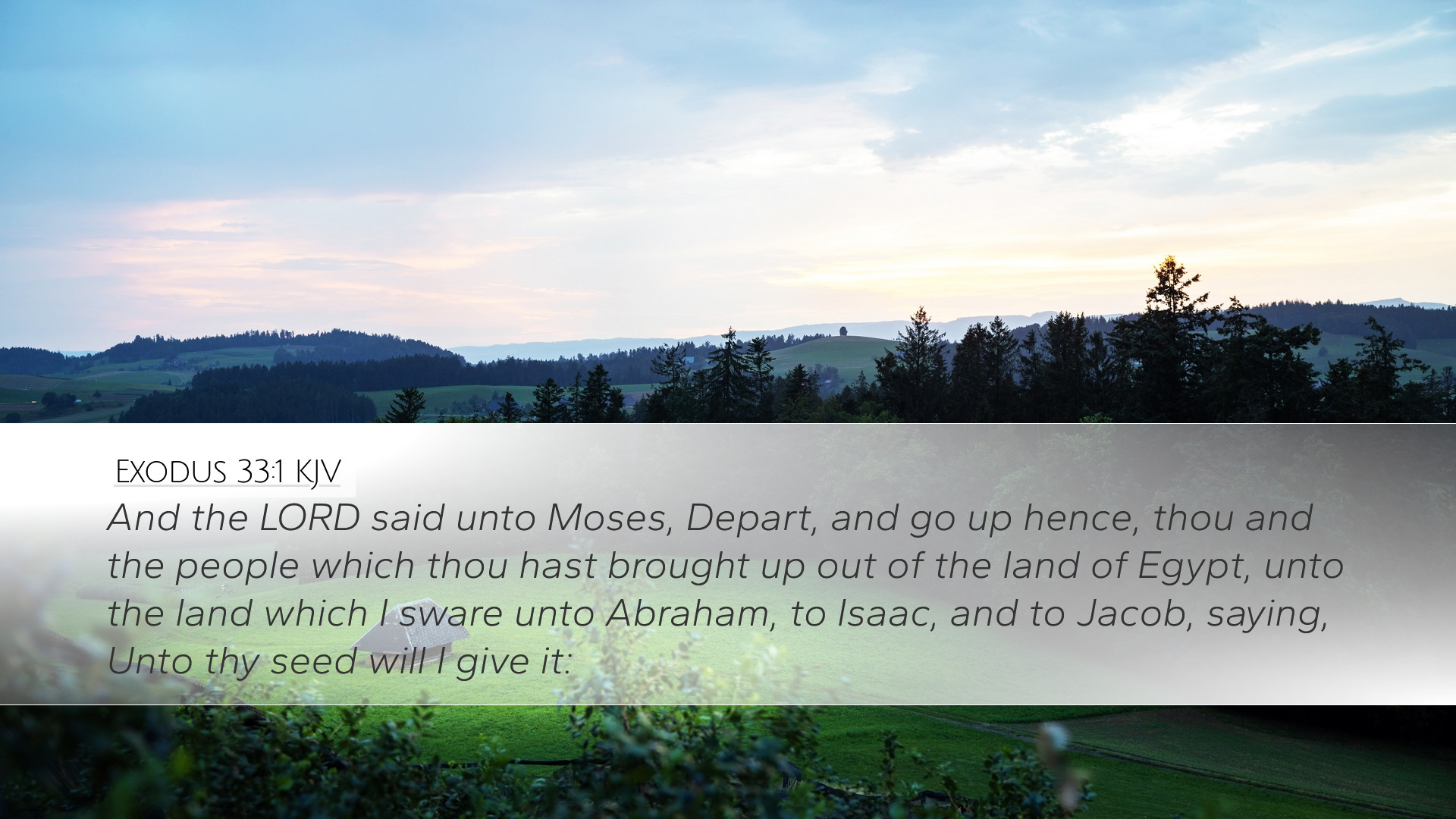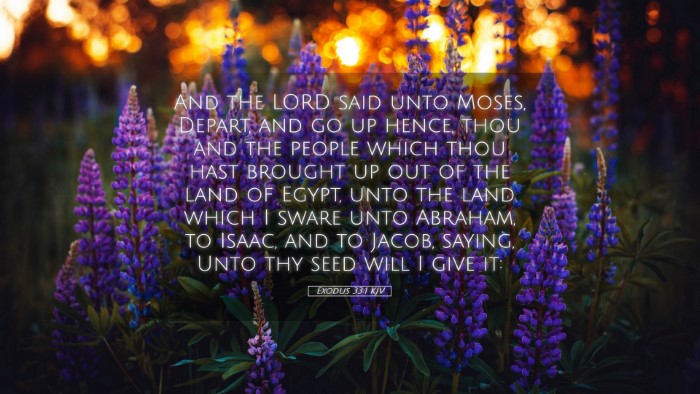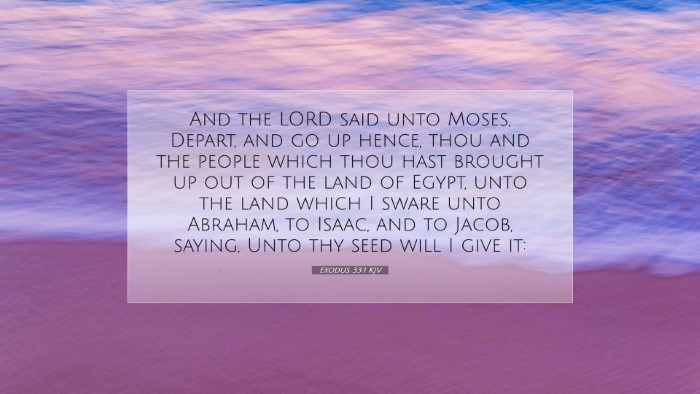Exodus 33:1 - Commentary Overview
Verse Text: "And the LORD said unto Moses, Depart, and go up hence, thou and the people which thou hast brought up out of the land of Egypt, unto the land which I sware unto Abraham, to Isaac, and to Jacob, saying, Unto thy seed will I give it."
Introduction
The passage of Exodus 33:1 serves as a pivotal point in the narrative of the Israelites’ journey from Egypt to the Promised Land. This verse not only marks a transition in the physical journey of the Israelites but also highlights profound theological implications about God's presence, covenant, and promises. This commentary synthesizes insights from various public domain commentaries to provide a comprehensive understanding valuable for pastors, students, theologians, and Bible scholars.
Theological Context
This verse occurs shortly after the incident of the golden calf, a time when Moses interceded for Israel, pleading with God for his people. The context is crucial: after Israel's sin, God expresses His intention to still lead them to the Promised Land but with a warning of His lingering displeasure.
Covenant Promises
Albert Barnes emphasizes that God’s command to Moses to lead Israel into Canaan underscores the significance of God’s covenant with the patriarchs—Abraham, Isaac, and Jacob. The phrase "unto thy seed" reflects a commitment that transcends generations, affirming God’s faithfulness despite Israel's failures.
Biblical Leadership
Matthew Henry remarks on the nature of biblical leadership displayed by Moses. This command to "depart" shows that Moses was called to be an instrument of divine will. It also reflects upon the responsibility of leaders to guide their people in obedience to God, illustrating a model of accountability and dedication in service.
Exegesis of the Text
This verse encapsulates several key elements worth examining further:
- Divine Directive: God's direct communication to Moses signals the need for obedience and a return to purpose.
- Geographical Transition: The mention of "the land which I sware" indicates not just a literal journey but also a spiritual transformation for the people of Israel.
- Collective Responsibility: The use of "thou and the people" emphasizes that leadership is a communal undertaking. Moses' relationship with the people is one of mutual accountability.
God's Faithfulness in Disciplinary Actions
Adam Clarke points out that the command to leave post-golden calf sin suggests that despite God's anger, His inherent nature is to lead and forgive. This reflects God’s dual nature of justice and mercy. Instead of abandoning them, God instructs Moses to continue the journey, reinforcing the idea that divine purpose remains unchanged even in the face of human failure.
Applications for Contemporary Believers
This verse and its commentary illustrate several timeless principles:
- Hope in Covenantal Faithfulness: Just as God remained faithful to His promise to Israel, believers today can trust in the promises of God, even when disobedience seems prevalent in their lives.
- Understanding God's Discipline: The reality of divine discipline serves as a reminder that corrections are meant for restoration, not destruction.
- The Role of Intercession: Moses' status as an intercessor demonstrates the power of prayer and advocacy for others, an essential practice in church and Christian life.
Conclusion
Exodus 33:1 stands as a reminder of the complexities of divine-human interaction, particularly the balance of justice, mercy, and the steadfast love of God. This brief examination, enriched by the insights of respected commentators, sheds light on the theological, historical, and practical implications of God’s directive to Moses and His continued guidance of His people. As contemporary believers reflect on this verse, it serves as both a call to leadership and a comfort in God’s unchanging nature.


